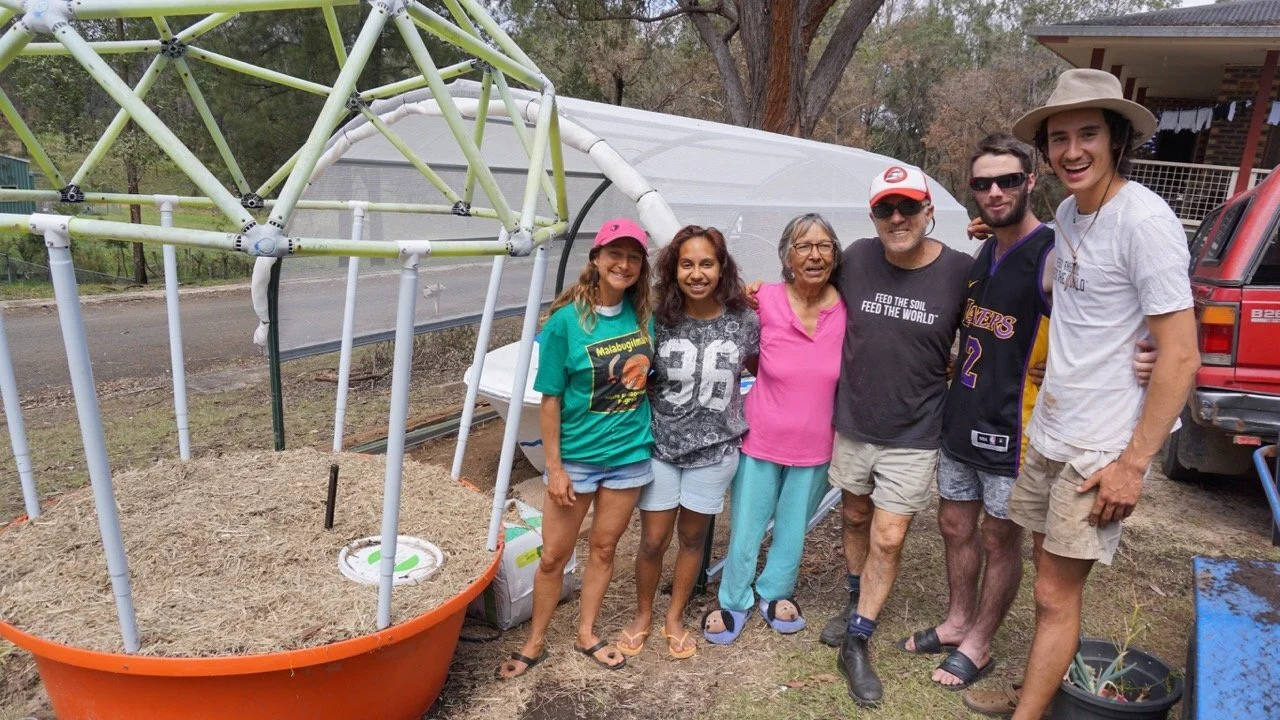Malabugilmah
A food waste and food growing solution for a remote Indigenous community
The Malabugilmah compost project is a part of the communities rubbish management plan, aiming to reduce waste to landfill by increasing organic recycling. The project is one of 29 projects in Aboriginal communities across NSW funded under the NSW EPA’s Aboriginal Community Waste Management Program.
Our team initially gave a presentation on converting organic waste to food to the Malabugilmah community, during a waste program with Elaine Toogood (N.E. Waste), Keith Bolton and Ross James (CEO of Jana Ngalee Aboriginal Land Council). The community was very enthusiastic and soon after the Compost Central team headed back with materials and produce, ready to assemble raised custom garden beds with composting systems.
Using up-cycled materials - an old boat, a busted wading pool, a cracked water tank, a number of duraplas tanks - we created 7 raised garden beds. Key to the project was community engagement.
LOCATION - Malabugilmah, Clarence Valley, NSW
DATE - 2018
CLIENT - Malabugilmah Community, NSW Government
DESIGN - Andrew HDV
PROJECT MANAGER - Andrew HDV
CONSTRUCTION - Andrew HDV, Peter Critch, Kathryn Roberts, Malabugilmah Community
TIMEFRAME - 1 week
The Malabugilmah compost project is a part of the communities rubbish management plan, aiming to reduce waste to landfill by increasing organic recycling. The project is one of 29 projects in Aboriginal communities across NSW funded under the NSW EPA’s Aboriginal Community Waste Management Program.
This project is supported by the NSW EPA Waste Less Recycle More initiative.
Impact
Environmental
Diverting food waste from landfill and converting it into a resource onsite
Offset carbon footprint – potential for the community to be net carbon neutral or even carbon negative
Building healthy, fertile soil for future food growing
Growing nutrient-rich edible foods which are easily accessible by residents
Economic
The community saves significant costs on purchasing herbs and vegetables
Waste management transportation costs are reduced due to lesser waste volume
Social
Empowering the community to manage their own waste and food growing
An inclusive activity to help unite the locals a common goals
Locals and visitors are exposed to working and educational, show and tell facilities
Social community strengthened with a shared goal of transforming waste and growing healthy food
Educational
Very tangible learning tool for the children and adults in the community, lead by the elder, Aunty Carol, to learn about food growing, composting and restoring soil health and fertility











